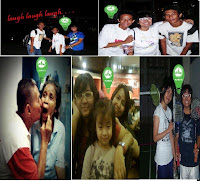Conditional Sentences
People often make wishes when they want reality to be different, to be exactly the opposite of (contrary to) the true situation.
1. Future Possible
A noun clause usually follows wish. Special verb forms are used in the noun clause. When a speaker expresses a wish about a present situation, s/he uses a past verb form.
Example :
a. Ron wishes he didn’t have to work tonight.
The true situation à Ron has to work tonight.
b. I wish I could speak Chinese.
The true situation à I can’t speak Chinese.
2. Present Unreal
If is often used to talk about situations that contrary to fact, situations that are the opposite of the true situation.
Example :
a. If Kate were here, she would help us.
The true situation àKate isn’t here.
b. If the weather were nice today, I would go to the beach.
The true situation à The weather isn’t nice today.
3. Past Unreal
Conditional sentences that discuss pass time have special verb forms :
IF-CLAUSE : the past perfect RESULT CLAUSE : would have/could have + past participle
Example :
a. If I had enough time, I would have accompanied my brother.
The true situation à I didn’t have enough time.
b. If the food has been cooked yesterday, I would have brought it to you.
The true situation à The food wasn’t cook yesterday.
Passive Voice
Form of all passive verbs :
Be + Past Participle
BE can be in any of its form : am, is, are, was, were, has been, have been, will be, etc.
THE PAST PARTICIPLE follows BE. For regular verbs, the past participle ends in –ed. Some past participles are irregular.
Example :
1. Active : Sam sent the message.
Passive : The message was sent by Sam.
2. Active : The news surprises us.
Passive : We are surprised by the news.
3. Active : Mr. Bob will mail the letter.
Passive : The letter will be mailed by Mr. Bob.
4. Active : Rachel has called the doctor.
Passive : The doctor has been called by Rachel.




